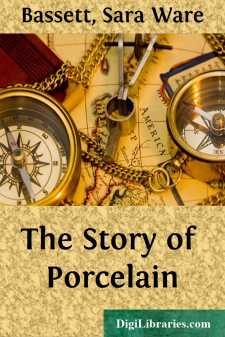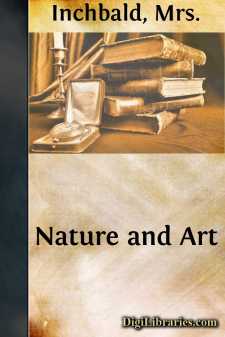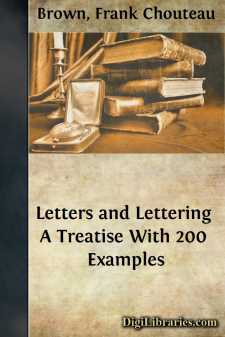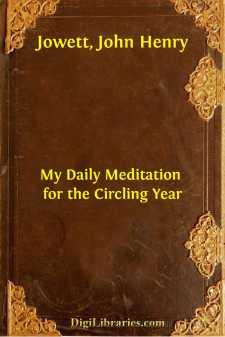Non-Classifiable
- Non-Classifiable 1768
Non-Classifiable Books
Sort by:
INTO THE WOODS Theo Swift dropped into a chair before the blazing fire in the log cabin, and drew a long breath of delight. At last his dream had come true; he was in the heart of the Maine woods! It was a wonderful experience for a boy of his age to be his father's companion on a fishing trip. Each spring when Dr. Swift had packed his tackle for his annual vacation into the wilderness, and Theo...
more...
by:
Mrs. Inchbald
INTRODUCTION Elizabeth Simpson was born on the 15th of October, 1753, one of the eight children of a poor farmer, at Standingfield, near Bury St. Edmunds. Five of the children were girls, who were all gifted with personal beauty. The family was Roman Catholic. The mother had a delight in visits to the Bury Theatre, and took, when she could, her children to the play. One of her sons became an...
more...
by:
Franz Edelsheim
INTRODUCTION Within recent years we have had a closer view of operations over the sea in connection with wars on land. The war between Japan and China, between America and Spain, between England and the Transvaal, and finally the Chinese Expedition, have largely demonstrated the methods of transporting troops over the sea. Whilst Moltke has shown the insignificance of the land forces for such...
more...
Andrew J. Blackbird, the author of this little book, is an educated Indian, son of the Ottawa Chief. His Indian name is Mack-aw-de-be-nessy (Black Hawk), but he generally goes by the name of "Blackbird," taken from the interpretation of the French "L'Oiseau noir." Mr. Blackbird's wife is an educated and intelligent white woman of English descent, and they have four children....
more...
FRA ANGELICO. Let us for a few moments turn our attention to a monastery a short distance from Florence. From its elevated position on the hills which skirt the vale of the Arno it commands a panoramic view of the "Lily City." It is the time when the Renaissance is virgin new to the world. Faith was still so real and living a thing that men and women shut themselves up from the world in order...
more...
INTRODUCTION. Undoubtedly every human being is fitted for some sphere of usefulnesssome industry by which he can benefit mankind and support himself in comfort. Just what we are fitted for must, almost invariably, be decided by ourselves; and the sooner the better, else we may plod among the thousands whose lives are miserable failures for the reason that "they have missed their calling." In...
more...
ROMAN CAPITALS In speaking of the "Roman" letter throughout this chapter its capital form—the form in monumental use among the Romans—will always be implied. The small or "minuscule" letters, which present nomenclature includes under the general title of "Roman" letters, and which will be considered in the following chapter, were of later formation than the capitals; and...
more...
by:
Grace Greenwood
MABEL HOWARD AND HER PET. After all, I think I had more real delight in the noble public parks and gardens of London than in palaces and cathedrals They were all wonders and novelties to me—for, to our misfortune and discredit,—we have nothing of the kind in our country. To see the poor little public squares in our towns and cities, where a few stunted trees seem huddled together, as though...
more...
THE UNKNOWN JOURNEY “He went out not knowing whither he went.”—Hebrews xi. 6-10. BRAM began his journey without any knowledge of his ultimate destination. He obeyed a noble impulse without any discernment of its consequences. He took “one step,” and he did not “ask to see the distant scene.” And that is faith, to do God’s will here and now, quietly leaving the results to Him. Faith is...
more...
by:
John Masefield
THE OLD FRONT LINE This description of the old front line, as it was when the Battle of the Somme began, may some day be of use. All wars end; even this war will some day end, and the ruins will be rebuilt and the field full of death will grow food, and all this frontier of trouble will be forgotten. When the trenches are filled in, and the plough has gone over them, the ground will not long keep the...
more...











